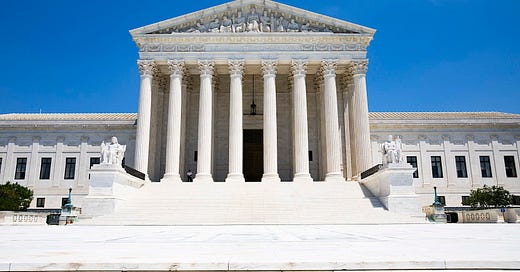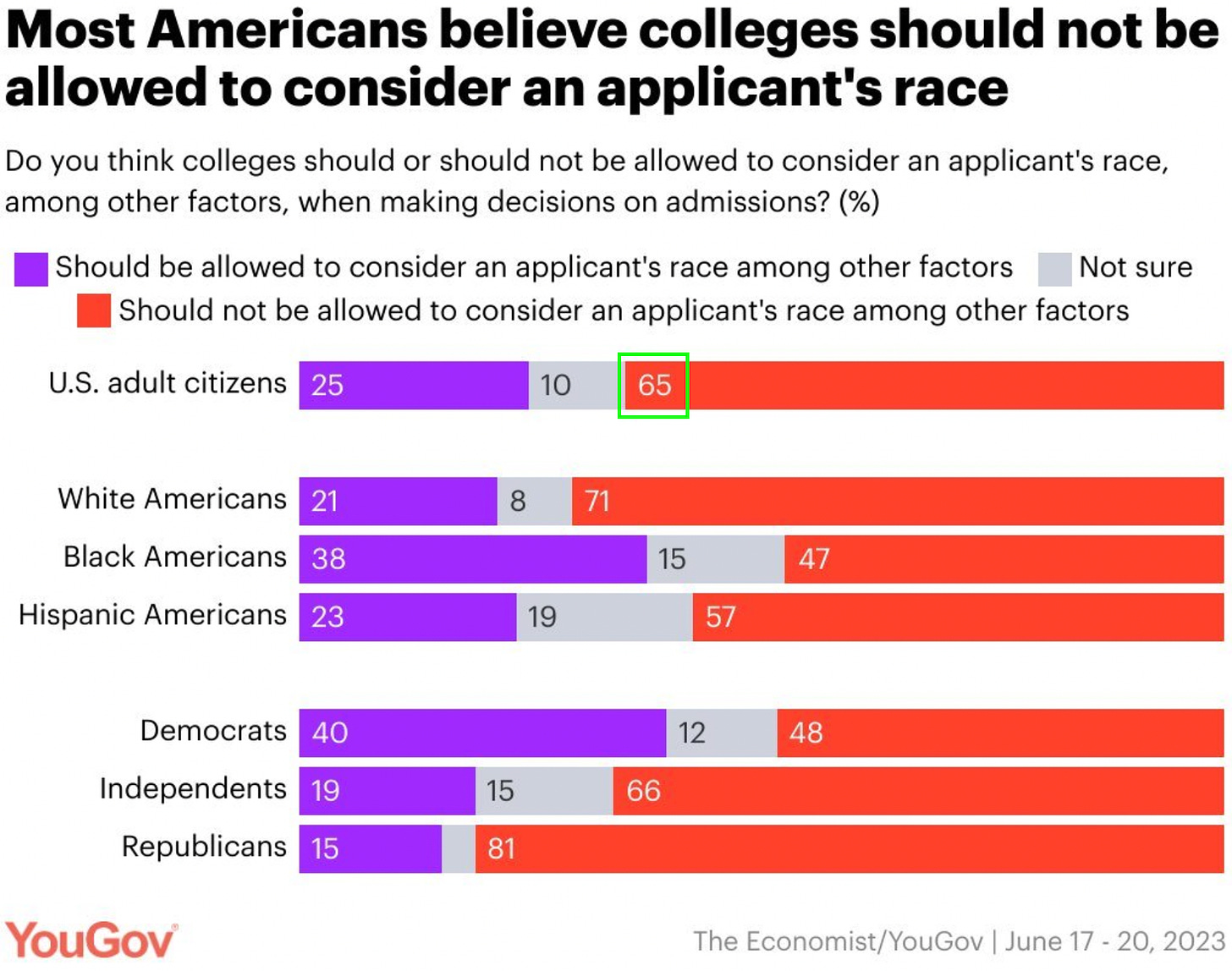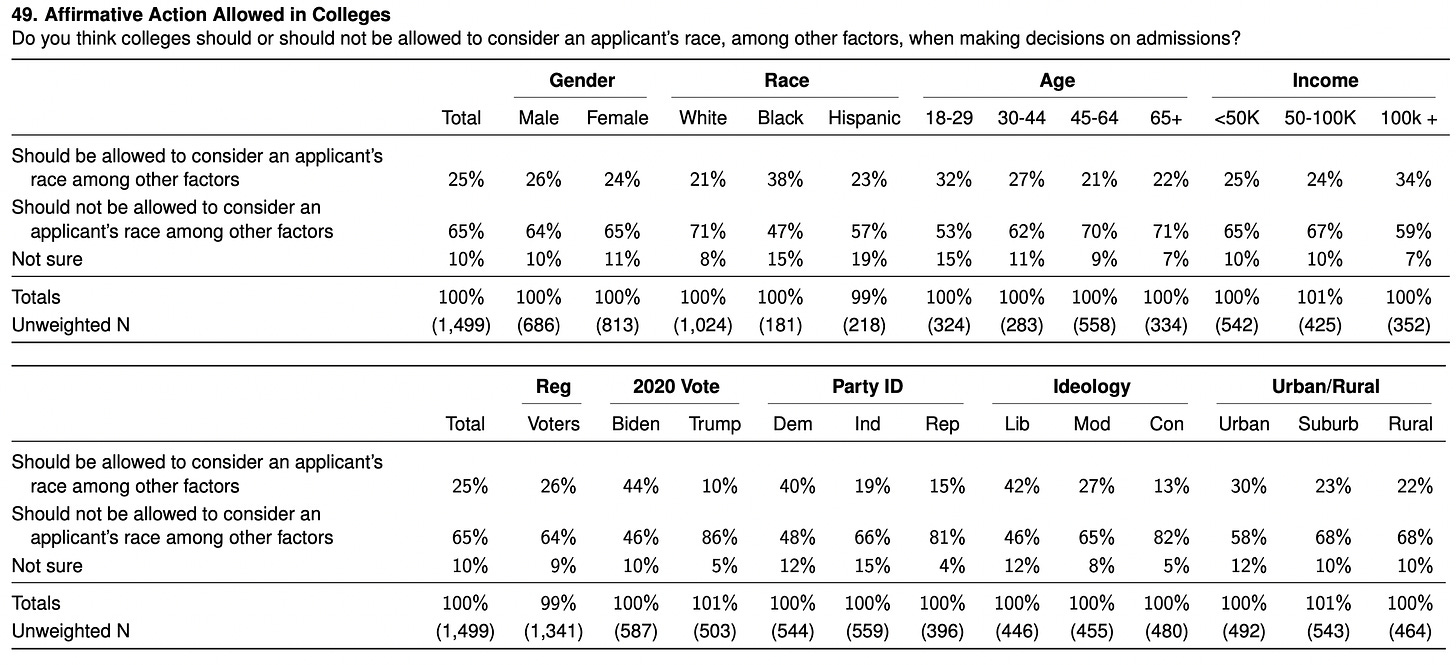
As the nation awaits the Supreme Court’s impending ruling on the constitutionality of affirmative action programs at Harvard University and the University of North Carolina, new polling from YouGov shows a clear verdict from Americans themselves—they don’t like it. Nearly two-thirds of American adults believe colleges and universities should not consider race at all in admissions decisions, with only one quarter saying race should be allowed along with other factors. One in ten Americans are not sure.
White Americans (71 percent) and Hispanic Americans (57 percent) overwhelmingly oppose the use of race in admissions, as do two-thirds of political independents, two-thirds of moderates, and more than 8 in 10 Republicans. Equal percentages of men (64 percent) and women (65 percent) oppose race-based policies, as do majorities of all age groups (with opposition growing by age) and all income-level groups.
Notably, given perceived partisan and racial divisions on the issue, pluralities of black Americans (47 percent), Democrats (48 percent), political liberals (46 percent), and Biden voters (46 percent) also oppose the consideration of racial background in college admissions.
It’s not often in public opinion research that you find widespread agreement across demographic lines about an issue as controversial as affirmative action. Despite disagreements on the remaining challenges facing younger generations of black Americans, voters themselves would prefer to see alternative methods for helping disadvantaged people—of all racial, ethnic, class, or religious backgrounds.
As Rick Kahlenberg argued recently in The Liberal Patriot, the likely demise of past affirmative action approaches built on race gives state and federal leaders a real opening to focus on constitutionally valid, more effective, and less socially divisive class-based efforts to assist those Americans of all backgrounds who lack the opportunities and resources necessary to make it to college and succeed. These approaches should include more funding for those in need:
Biden should announce a number of public policy proposals that will ease the transition from racial preferences to those for economically disadvantaged students for universities. Most obviously, Biden should propose greater federal financial support for impressive working-class students of all races who have overcome odds. One big reason universities have relied heavily on racial preferences is that it’s cheaper to admit well-off students of all colors than to provide financial aid to low-income and working-class students. Harvard and other rich universities can afford to do this on their own, but many will need greater federal and state financial support.
Americans are willing to take an extra step to help low-income young people from all parts of the country. So rather than bemoan the likely end of past remedies in terms of wider access to college, political leaders should work cooperatively to ensure that every kid in America gets a chance to put his or her talents and ambitions to good use in higher education should they choose that path.






